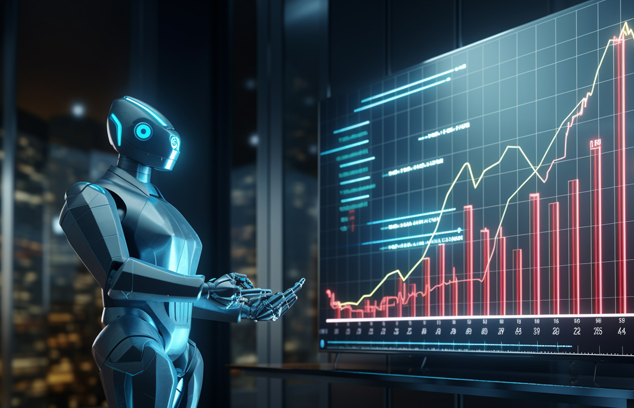Win with AI: AI Transforming Manufacturing Industry with Smart Solutions
Artificial Intelligence (AI) has revolutionized industries across the globe, and the manufacturing and steel industries are no exception. The advent of AI has brought about significant advancements, enabling businesses to streamline operations, enhance productivity, and achieve unprecedented levels of efficiency. In this article, we will explore the importance and benefits of generative AI in manufacturing and the steel industry. We will delve into the use cases of AI in incident management and response, shedding light on how organizations can harness the power of AI to optimize their incident management processes. Furthermore, we will showcase a real-life use case of our organization where AI has been effectively utilized to enhance incident management and response.
Introduction
Manufacturers continue to grapple with longstanding challenges such as: higher production costs, equipment failure, and bottlenecks in the supply chain. Adding to these issues are contemporary hurdles like the customization of mass-produced items, the digitization of products, and the imperative to comply with ESG (Environmental, Social, and Governance) standard
A study conducted by PWC suggests that global economic output, as measured by GDP, could experience a remarkable 14% growth by 2030 compared to its projected value, owing to the integration of AI. The economic advantages of AI are expected to materialize through:
- Productivity Enhancements: Businesses leveraging AI to automate processes and augment their existing workforce with various AI technologies stand to achieve significant productivity gains.
- Increased Consumer Demand: The availability of personalized and/or higher-quality digital and AI-enhanced products and services is anticipated to spur an uptick in consumer demand.
As depicted in Figure 1, the widespread adoption of AI applications holds the potential to boost the sectors' contribution to GDP gains by over 10% by the year 2030.
.jpg?width=744&height=432&name=1707830854561%20(1).jpg)
As depicted in Figure 1, the widespread adoption of AI applications holds the potential to boost the sectors' contribution to GDP gains by over 10% by the year 2030.
Significance of AI in Manufacturing and Steel Industry
AI holds immense potential in transforming the manufacturing and steel industries. By combining machine learning algorithms with vast amounts of data, generative AI enables machines to generate designs, make decisions, and optimize processes without human intervention. With its ability to analyze complex datasets and learn from patterns, AI has proven to be a game-changer in these industries, offering several key benefits:
- Enhanced Design Optimization: AI algorithms can analyze vast amounts of data and generate multiple design options based on predefined criteria, enabling manufacturers to optimize product designs for superior performance and cost-efficiency. This technology has significantly reduced the time and resources spent on traditional design iterations.
- Predictive Maintenance: AI-powered systems can analyze real-time sensor data from machinery and identify patterns that precede equipment failures. By detecting potential issues before they occur, manufacturers can schedule maintenance activities proactively, minimizing downtime and reducing maintenance costs.
- Quality Control and Process Optimization: Generative AI algorithms can analyze sensor data from various stages of the manufacturing process to identify anomalies and deviations from optimal conditions. This proactive monitoring enables organizations to achieve higher product quality, reduce waste, and optimize production processes.
- Supply Chain Optimization: AI algorithms can analyze historical data, market trends, and external factors to optimize inventory management, procurement, and transportation logistics. By accurately predicting demand and optimizing supply chain operations, manufacturers can reduce costs and improve customer satisfaction.
.jpg?width=667&height=438&name=1707830882162%20(1).jpg)
While AI capabilities are deployed throughout various aspects of manufacturing companies, Figure 2 illustrates that companies are placing a slightly greater emphasis on integrating AI solutions into core production processes, such as product development, engineering, assembly, and quality testing. This strategic focus underscores the pivotal role AI plays in driving efficiency and innovation within these industries.
.png?width=2232&height=939&name=1707830911505%20(1).png)
Enhancing Incident Management and Response with AI
Incident management is critical in manufacturing and steel industries to ensure the safety of workers, the environment, and the efficient operation of processes. With the integration of AI, incident management and response processes can be significantly enhanced, providing real-time insights, proactive measures, and efficient resource allocation. Here are some key applications of AI in incident management and response:
- Real-time Monitoring: AI-powered systems can continuously monitor environmental parameters, production processes, and equipment performance, detecting anomalies and potential incidents in real-time. This early detection enables prompt response and minimizes the impact of incidents.
- Predictive Analytics: AI algorithms can analyze historical incident data, identify patterns, and predict potential incidents. By leveraging this predictive capability, organizations can implement preventive measures to mitigate risks and avoid costly incidents.
- Decision Support Systems: AI can provide decision support to incident management teams, offering insights and recommendations based on real-time data and historical incidents. This assists in making informed decisions during critical incident response situations.
- Resource Optimization: AI algorithms can optimize resource allocation during incident response, including personnel deployment, equipment usage, and supply chain logistics. This ensures optimal utilization of resources and faster resolution of incidents.
Clarion helps Nucor elevate Incident Management with AI Chatbot
Nucor, a major player in North America's steel industry, has embraced artificial intelligence to optimize its incident management and response capabilities. In collaboration with Clarion Technologies, Nucor successfully introduced an advanced chatbot designed to streamline the handling of incidents.
This user-friendly chatbot offers a departure from traditional manual reporting methods. Users can now effortlessly glean comprehensive insights by simply posing questions. The chatbot's real-time responses provide immediate clarity on incident management, backed by the latest data. This ongoing initiative is poised to significantly save time for the organization while minimizing the risk of human error.
Conclusion
AI has revolutionized the manufacturing and steel industry, empowering companies to optimize designs, streamline processes, and improve overall efficiency. Through the integration of AI in incident management and response, organizations can proactively detect and mitigate incidents, enhance decision-making, and optimize resource allocation. Our organization's use case demonstrates how AI can be effectively utilized to enhance incident management and response, leading to improved safety outcomes and operational excellence. As AI continues to evolve, its potential to reshape these industries is boundless, offering countless opportunities for growth and innovation.



